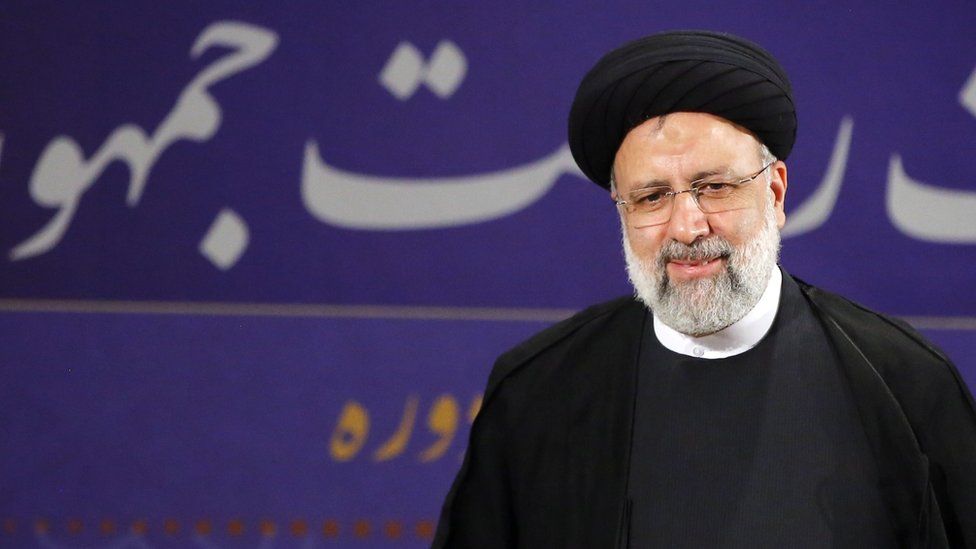Leading conservatives Raisi and Larijani enter Iran presidential race
Iran's judiciary chief Ebrahim Raisi and former parliamentary speaker Ali Larijani have registered to run in next month's presidential election.
The two conservatives, who have close ties with Supreme Leader Ayatollah Ali Khamenei, are seen as the leading contenders to succeed Hassan Rouhani.
Mr Rouhani, a moderate, is not allowed to run for a third consecutive term.
More than 300 other hopefuls have also applied to be candidates. They must all now be vetted by the Guardian Council.
The 12 theologians and jurists on the council approved only six of the more than 1,600 candidates for the last election in 2017, which Mr Rouhani won in the first round with 57% of the vote. Mr Raisi came second with 38%.
Since then there has been rising discontent in Iran over the state of the country's economy, which has been crippled by US sanctions reinstated in 2018 by then-President Donald Trump.
He abandoned a nuclear deal negotiated by Mr Rouhani that saw Iran limit its nuclear activities in return for sanctions relief. Iran stopped abiding by key commitments in response to the move.
"I have come as an independent to the stage to make changes in the executive management of the country and to fight poverty, corruption, humiliation and discrimination," the 60-year-old Mr Raisi said in a statement on Saturday before registering his candidacy.
Later, in an apparent dig at establishment figures like Mr Larijani and candidates allied to Mr Rouhani, the hard line cleric told journalists that "those who founded and partnered with the current situation can't claim they can change it".
Reformists and human rights activists have expressed concerns about Mr Raisi's background, particularly his role in the mass executions of several thousand political prisoners in 1988.
Mr Raisi has said the executions were justified because the late Supreme Leader Ayatollah Ruhollah Khomeini issued a fatwa, or religious ruling.
Mr Larijani, a 63-year-old conservative former nuclear negotiator who currently serves as an adviser to Ayatollah Khamenei, said the other presidential contenders were not capable of fixing the economy, particularly those with military or judicial backgrounds.
"The economy is neither a garrison nor a court that would be managed with shouts and orders," he told a news conference after registering.
Other candidates in the 18 June election include Mr Rouhani's First Vice-President, Eshaq Jahangiri; former Supreme National Security Council secretary and nuclear negotiator Saeed Jalili; and Expediency Council Secretary Mohsen Rezaei, a former head of the Revolutionary Guards.
The Guardian Council will publish a list of approved candidates on 27 May.
https://www.bbc.com/news/world-middle-east-57129854





Post a Comment